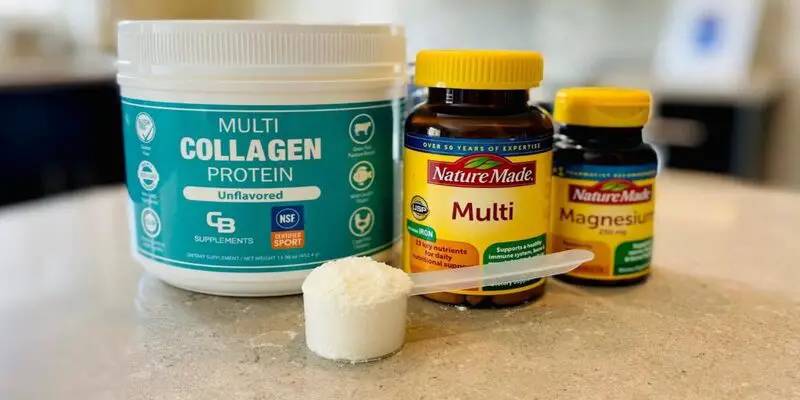The idea of an alkaline diet was based on the fact that eating more alkaline foods instead of acid-forming ones will enhance your health. People came to know about the alkaline diet when it gained popularity on social media. But everything you see on the internet does not necessarily show the same results to everyone or give long-term results.
In addition, the fundamental principles of an alkaline diet lack scientific backing. So, the question arises whether it is suitable for you or not. Give this article a read to find out whether the alkaline diet is worth giving a try or not.
All You Need to Know About Alkaline Diet
The alkaline diet, often referred to as the alkaline ash or acid-alkaline diet, says that consuming particular foods can change your body's pH. Metabolism is a reaction that converts the food you eat into energy and leaves a residue behind, which can be termed ash.
This waste may include acidic, alkaline, or neutral ash. Supporters of the alkaline diet claim that the body's acidity is affected by the acidic nature of ash. It is believed that alkaline ash gives you protection against illness and diseases, while acidic ash makes you more vulnerable.
List of Top Ten Foods to Include in Your Alkaline Diet

The primary categories of alkaline food mainly include nuts, veggies, fruits, and legumes. The following are the top ten examples of those foods which you must incorporate into your diet.
- Broccoli
- Beets
- Mushroom
- Tomato
- Peas
- Apple
- Almonds
- Cherries
- Pineapples
- Pumpkin seeds
Additionally, it is recommended to add animal protein to your diet, like chicken, fish as well as cottage cheese.
Working of An Alkaline Diet
The acid-ash or alkaline diet categorizes foods depending on the amount of acid produced by them when they are digested. This amount of acid produced is different from the level of acidity of foods when they are in the raw state. pH less than seven is produced by acid-forming foods, while a pH greater than that is produced by alkaline foods. All the foods having a pH seven are termed as neutral. Considering that, the diet suggests:
- Avoiding items that cause acidity, such as wheat, dairy, seafood, eggs, and meat.
- Eating many foods that generate an alkaline environment, such as nuts, legumes, fruits, and vegetables.
- Restricting neutral foods like natural fats, sugars, and carbohydrates.
However, there is little evidence to suggest that the pH level of food affects general health, but plenty of research indicates that diet alone cannot alter the pH of the body. The pH levels of different physiological parts differ from one another. For instance, the stomach must be highly acidic to function.
Is Losing Weight Possible with an Alkaline Diet?

The main goal of the alkaline diet is not weight loss, and there is no evidence to support its role in this regard. Even though weight reduction is not the primary objective of an alkaline diet and is not supported by research as a significant result, but any well-balanced dietary plan tends to decrease calories overall. Furthermore, it's well acknowledged that sticking to an alkaline diet that prioritizes vegetables and fruits over processed meals might help with weight reduction and maintenance.
According to the Mayo Clinic, there is a possibility that an alkaline diet can help maintain muscle mass since muscle consumes more calories. A previous study discovered that women who ate an extra alkaline diet had greater muscle mass indices. This result is probably because vegetables and fruits have minerals such as magnesium and potassium, which support the maintenance of muscle.
What Possible Health Benefits Could an Alkaline Diet Offer?
Authors of different guides and followers of this diet suggest the benefits of an alkaline diet by saying it treats diseases and many chronic conditions like kidney diseases and cancer. Various studies have been performed to verify this claim, and here are the findings of the different studies.
Bone Health:
A reduction in the amount of minerals in bones is the hallmark of the degenerative bone disease osteoporosis. It can significantly raise your risk of fractures and is especially common among postmenopausal women.
According to the theory of an alkaline diet, your body uses minerals that are alkaline from the bones to neutralize acids from meals that cause your blood pH to rise. This acid-ash hypothesis about osteoporosis predicts that diets high in acid might lead to a decrease in the density of bone minerals.
But this theory doesn't take into account how your lungs and kidneys operate. Different acids, classified as metabolic or respiratory, can be found in the blood. The acid-ash theory also fails to take into account how osteoporosis is related to collagen loss. Ironically, there is an essential connection between collagen loss and low amounts of vitamin C and Orthosilicic acid in your diet.
Cancer:
According to specific research, cancer cells grow best in conditions that are highly acidic. Alkaline diet advocates claim that you may increase the body's neutral pH levels and create an environment that is less friendly to cancer by eating a diet rich in foods that are alkaline and limiting acidic ones.
However, these studies also have no scientific basis at all. They don't show the complex behavior of tumors in your body. Also, there is no chance that the food you eat can affect the normal blood pH. This is because the body's pH is strictly regulated. If you modify your diet, fluctuations in the normal pH of urine or saliva will be seen because they are excretory products. But eating an alkaline diet is not going to have any influence on your blood.
The Bottom Line!
To put it in a nutshell, we can say that no matter what claims the supporters of the alkaline diet make, you must do your research because the idea of an alkaline diet lacks scientific backing when it comes to treating diseases like cancer. No doubt, having a diet full of vegetables and fruits is good for your overall well-being, but relying totally on this diet is not recommended at all.







